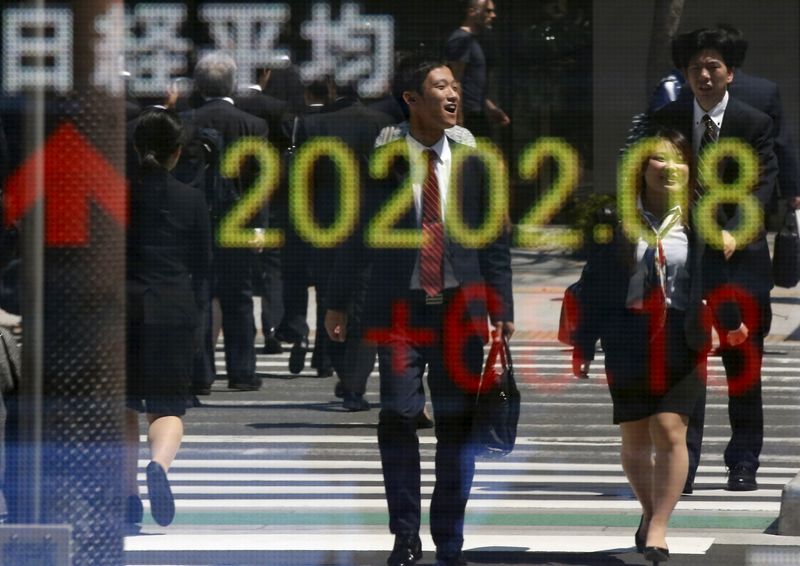This post was originally published on this site
https://i-invdn-com.investing.com/news/LYNXMPEB3S00V_M.jpg
Investing.com – Asia Pacific stocks were up on Thursday morning, contributing to a global rally as mostly positive U.S. data and positive signs about the impact of the omicron COVID-19 variant on the economic recovery.
Japan’s Nikkei 225 was up 0.31% by 9:44 PM ET (2:44 AM GMT), with Bank of Japan Governor Haruhiko Kuroda speaking earlier in the day.
South Korea’s KOSPI was up 0.32% and in Australia, the ASX 200 was up 0.38%.
Hong Kong’s Hang Seng Index gained 0.44%.
China’s Shanghai Composite edged up 0.15% and the Shenzhen Component was up 0.22%. Shares in JD (NASDAQ:JD).com Inc. (HK:9618) slid after Tencent Holdings (OTC:TCEHY) Ltd. (HK:0700) announced plans to distribute JD.com shares worth HK$127.69 billion ($16.37 billion) to investors as a one-time dividend. Tencent’s stake in JD.com will fall from around 17% to 2.3%.
U.S. shares were little changed after the S&P 500 closed in on its record high. Wednesday’s U.S. data showed that the GDP grew 2.3% quarter-on-quarter in the third quarter of 2021 while existing home sales were at 6.46 million for November and the Conference Board Consumer Confidence index was at 115.8 for December.
Further data, including initial jobless claims, new home sales, durable goods orders, and the PCE price index is due later in the day. The data also includes personal income and spending, as well as the University of Michigan consumer sentiment and Michigan Consumer Expectations indexes.
A gauge of global stocks is up more than 2% for the month to date, leaving the index 15% higher for 2021 and on course to surpass the gains made in 2020. But recent market volatility, with the discovery of omicron and central banks’ moves towards tighter monetary policy, still has some investors concerned.
“Markets hate uncertainty and not knowing, and when omicron hit the markets, we didn’t know. But it seems like it’s edging toward something more positive,” BMO Family Office deputy chief investment officer Carol Schleif told Bloomberg.
On the COVID-19 front, Pfizer Inc.’s (NYSE:PFE) COVID-19 antiviral therapy, Paxlovid, received emergency use authorization from the U.S. Food and Drug Administration.
The virus’ unpredictable path and the impact on growth and inflation continue to dominate investor risk appetite,” David Chao, global market strategist Asia Pacific at Invesco, told Reuters.
“The recent health data from the U.K. and other places around the world indicate that the worst case is unlikely. Even though transmission rates are reportedly higher, this variant seems less virulent and less prone to cause serious illnesses or death.”
Meanwhile, the Chinese city of Xi’an tightened restrictive measures to curb its latest outbreak of the virus. Omicron has now become the dominant COVID-19 strain in Australia, with the state of New South Wales seeing a record number of daily cases.

